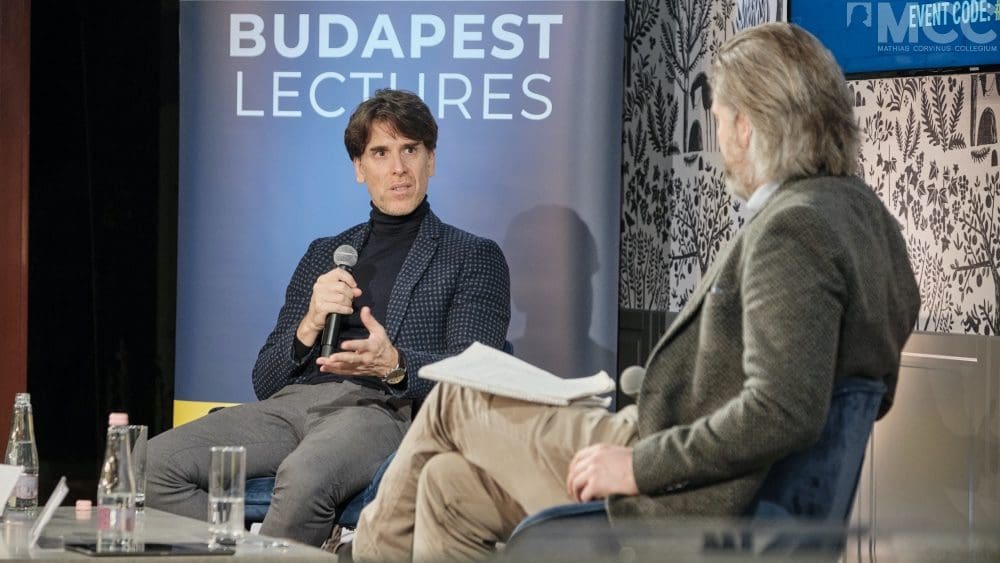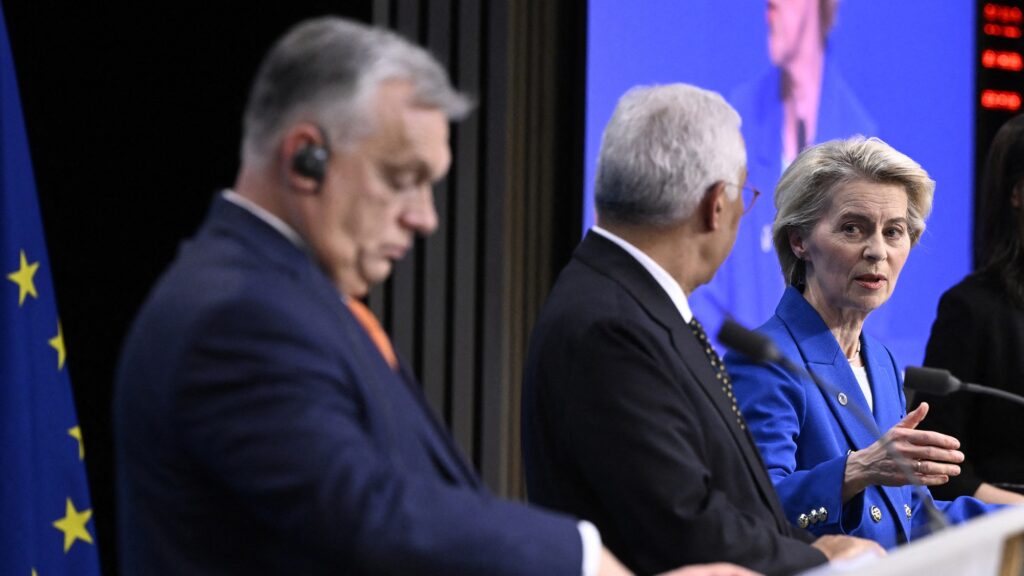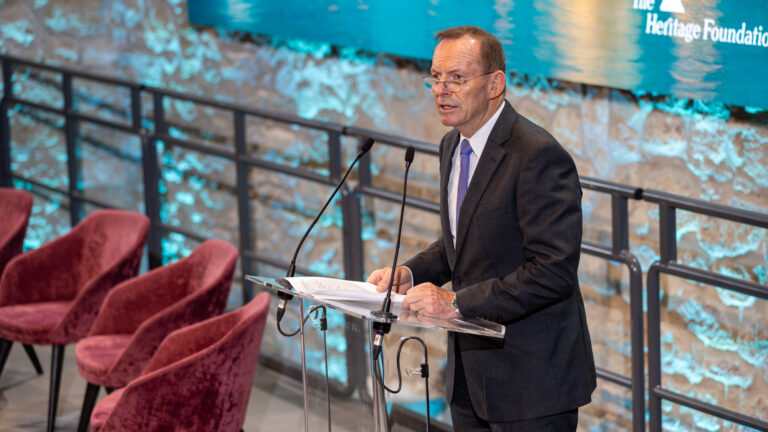The Mathias Corvinus Collegium’s Budapest Lectures series welcomed Simon Cottee to give a lecture about the complex reality of radicalization. Dr Cottee is a senior lecturer in criminology at the University of Kent and a regular contributor to The Atlantic magazine. He is the author of numerous publications on the violence of ISIS and the Islamic apostasy. His latest book is Black Flags of the Caribbean: How Trinidad Became an ISIS Hotspot. Dr Cottee has given a brief interview to the Hungarian Conservative.
One of your most cited books is The Apostates: When Muslims Leave Islam. Why did you feel important to write on such a topic and to show the difficult situation and fate of those who had left Islam?
I guess, just because nobody was talking about it in academic circles. And certainly, in sociology and the sociology of religion, most of the focus is on religious conversion to Islam. But there was not a single study on why or how people leave Islam. I thought, there is a research gap that needed filling. And it seemed to me that there was just this reluctance on the part of sociologists to want to talk about people leaving Islam, out of a politically correct sense that this would be negative news about Islam; that it would reflect negatively on Muslims. This [book] is not affirming a positive story about Islam. It is looking at the informal, social control mechanisms within Muslim communities that make leaving Islam difficult. And just out of a genuine curiosity: Why did people leave? How did they leave? And what are the consequences of leaving? I interviewed, I carried out life history interviews with about 40 ex-Muslims to see how they came to leave? Why did they leave? How did they do and what happened? And the overwhelming stories that leaving Islam is psychologically difficult for those who do it, and there are big consequences for those who do it in terms of family relationships. Many of those who left were ostracized from their communities, isolated, depressed. So, the book is really about their stories, the moral difficulties and practical difficulties of leaving. Nobody I met was subjected to violence, or violent threat. But they were subjected to threats of what sociologists would call social death, that their lives would be destroyed because of the living. And so, I thought, this is an important story to tell. Because, on the far right, you would have people saying: oh, Muslims who leave Islam, risking their lives, and they are going to be killed. Well, that may be true in Middle Eastern countries. But this is not true in the West. But nonetheless, they are still subject to very costly consequences in leaving.
It leads us my next question. Islam as a religion, its theology, its culture etc. was highly hijacked by each side of the political spectrum. Especially when it came Jihad. Experts, politicians loved to reveal the true face of Islam in the past years. From your point of view what is the right way to think about Islam? How could we get to know the true face of Islam?
I would look at it sociologically, in the sense that there is no true face of any religion or Islam
Religion is what its believers make of it. I think within certain restraints, it is obvious that you cannot do what you want. Religion is enabling and constraining at the same time, but I do not think there is a true face. Of course, jihadists say that Islam has a true face and the true face of Islam is our fringe interpretation of it with its austere Sharia law, the Islamic Caliphate, no impurities, or authentic Islam as practiced by the companions of the prophet in the seventh century. Then you have others liberal modernistic, who say that the true face of Islam is that it is a religion of peace; that the Quran actually preaches religious freedom, if only we would interpret it in this way and recognize it. So, believers have fought over this. It is not for me to decide what the truth is, a religion is and in fact, this is something that believers work out themselves. It is a matter of interpretation and I think it is up to believers. I am interested in how people behave and reenact that faith really.
Turning to ISIS. What made the ISIS so popular and appealing to youth especially? It seemed that its brutality in the one hand scared people, but in the other hand made them an attractive jihadi brand.
Yeah, I think it is a great point. I think people, including myself, were mesmerized by ISIS and its spectacle of violence in a voyeuristic way, in some way. And also, just the display of all power and potency. I think that was seductive for some people. And I think there is an argument that ISIS wouldn’t have happened without social media. And I am not sure if that is true, I think it wouldn’t have happened without the global media. And I’m talking about huge news organizations that I think were somehow bewitched by ISIS and followed its every crime and depredation. Every ISIS video that would be released, no matter how shitty or trivial, would find its way to the pages of newspapers. So, the response of Western newspapers massively amplified it and gave it a global brand, and I think ISIS was thrilled about that. It encouraged them to do evermore violent deeds because they knew that the Western media would be reporting on it in great detail. So, both were feeding off each other in some way.
Kind of a symbiosis?
Symbiosis. Yes, exactly. So, I think that’s what made it so prominent and gave it such publicity to attract reasonably large numbers of people from all areas of the globe. I do not necessarily blame the media for it. Because, you know, it was a great story. And now that ISIS has gone, you sense they want to know where the next big story is coming from. It seems that the far right in America is what we’re now obsessed with in a way we are obsessed with jihadists. It makes a great story in newspapers. There was just something very seemingly strange and spectacular about ISIS that commanded this massive attention.
Even though ISIS and the idea of the caliphate failed militarily and geographically, how can their ideology, which is still existing and spreading, also be rooted out?
I think the collapse of the caliphate was in March 2019 and it was a massive blow on ISIS
I think that their momentum is gone. I do not see any energy there. I think the energy of the jihadi movement in the West to potentially radicalize the youth is partly gone. I mean, of course, it has now got provinces in Africa, but I think it is on the waned. But that does not mean to say that there cannot be a resurgence of some other Islamic group that takes on the mantle of ISIS. But at the moment, it does feel like the energy is gone out of it because it lost the caliphate. And you can see it in terms of terrorist attacks in the West inspired by ISIS. ISIS is not claiming any attacks anymore, because it cannot. And people do not want to kill themselves for a movement that failed and does not really exist anymore. I think a lot of energy is gone from it. It is unclear to me what is happening now on that front. And it will be contingent on events in the Middle East, and I suspect in Africa, where ISIS still has some foothold.
What are the key factors needed for the radicalization of a person, especially a youth living in Western countries?
I think the existence of a credible group to pay allegiance to is the key. So, you saw this during the Iraq war, with the rise of al Qaeda, and then the Islamic State, which emerged out of al Qaeda. You saw suicide bombings in London in 2005 and subsequent bombings. I think there has to be a theatre of conflict and a group that attracts the allegiance of these kids. But there seems to be the emergence of more atomized, loner acts of terrorism in the name of Islam. But again, the numbers who are engaging in these attacks are incredibly low.







